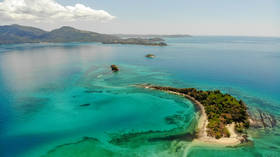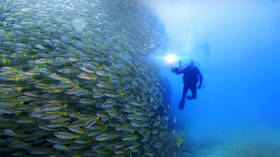Russian Arctic Center strikes unlikely partnership

The Federal Center for Integrated Arctic Studies (FECIAR), the Ural branch of the Russian Academy of Sciences Institute of Geography (IGRAS), will cooperate on water researches with the University of Toamasina in Madagascar, the center’s director, Ivan Bolotov, told TASS on Thursday.
According to Bolotov, an agreement has been signed with the university – the first partner of FECIAR in Africa. The collaboration will involve discussing water bodies for research on continental drift, the effects of climate change, and training in genetic research techniques.
“The Center has concluded a cooperation agreement with the University of Toamasina, Madagascar. For FECIAR, this is the first partner university in Africa, the first agreement we have concluded with an African university. The agreement was signed on the exchange of employees, graduate students, on joint training, expeditions. We have several directions of joint work,” Bolotov said.
Freshwater invertebrates, specifically Naiad mollusks, will be the focus of the collaboration. The research goal is an understanding of the role divergent continental plates played in the formation of flora and fauna in different parts of the world.
“It is interesting to see how the freshwater mollusks that live in Madagascar correlate evolutionarily with those that live in Africa and those that live in India nowadays,” Ivan Bolotov explained.
The most up-to-date information about the Naiad in these reservoirs goes back over a century.
The Arctic Center is in the process of collaborating with other partners in Africa, Bolotov added. In Morocco, Russian scientists are already working with colleagues to improve clam systematics. Moreover, Russian experts are keen on studying the significant rivers of the continent.













